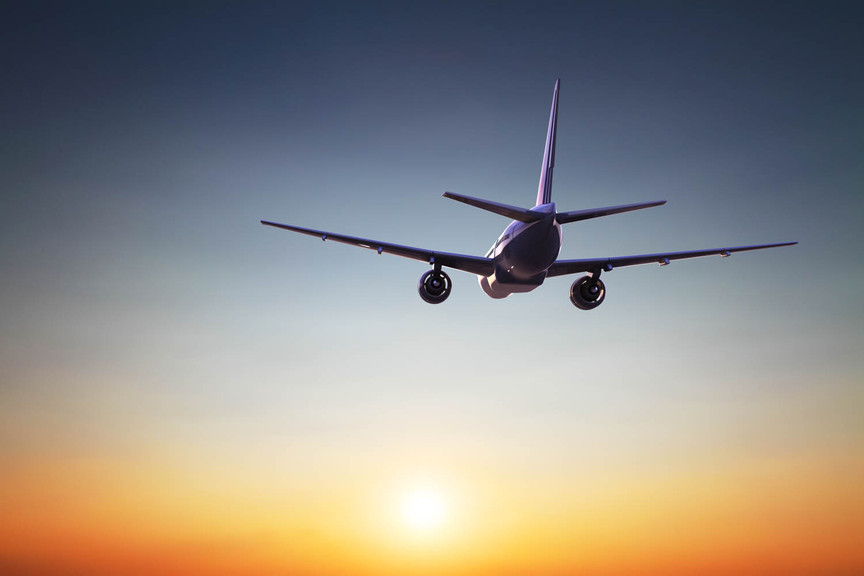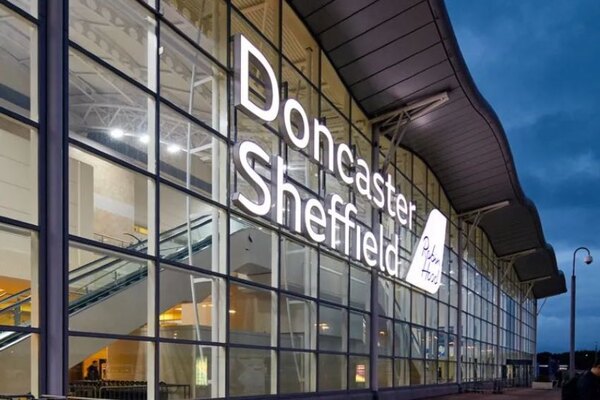The Big Question: Should we be flying during a climate crisis?
 James Chapple
James ChappleFive travel experts give their views on how the industry and consumers should face up to the burning issue facing travel in first of a series of new monthly features from TTG.
At TTG, we believe debate and discussion is crucial to progress. This month, we launch a new series of Big Questions posing controversial – and sometimes uncomfortable – topics for the industry to address.
As awareness around sustainability – and the role we should all be playing to reduce our carbon footprint – grows, TTG asks in this first Big Question whether we should even be flying at all given the current climate crisis.
What do you think? Join in the debate in the comments section below, or email feedback@ttgmedia.com. Alternatively, head to one of TTG’s social media channels to get involved.
'Much progress is being made'
Aviation is one of the great UK success stories. As an island, we rely on air travel for so much. Pre-pandemic, we had the world’s third-largest aviation network on the planet, worth up to €90 billion to the UK economy in 2019.
However, we also know air travel is one of the hardest sectors to decarbonise. Despite accounting for just 2% of all human-induced CO2 emissions globally, other industries will get to net-zero before aviation – and this will rightly lead to greater public scrutiny of our efforts to decarbonise.
Much progress is being made. Aircraft today consume far less fuel than their predecessors and, as a result, we have decoupled growth in emissions with growth in aviation. It’s nowhere near enough, though. It’s why the UK government published its Jet Zero Strategy last July – a hugely ambitious document, backed by industry, setting out how net-zero emissions can be achieved by 2050 without resorting to managing demand through higher fares or capacity restrictions.
Tens of billions of pounds, along with the ingenuity of our engineers and manufacturing base, is going into making this a reality. Collaboration with government will be vital, too, to modernise our airspace, ensuring the UK becomes a global leader in sustainable aviation fuels, and demonstrating hydrogen-powered aviation is possible.
This will sustain tens of thousands of jobs throughout the UK and see the UK take a lead on establishing the green industries of the future. Ultimately, it is the only way to preserve air travel for future generations. The choice isn’t green or growth. It is whether we choose green and growth, or submit to measures that will see fewer people enjoy all that aviation can offer.
Tim Alderslade is chief executive of Airlines UK.
‘We must stop romanticising flying’
Travelling by air over rail for short-haul has become a norm thanks to the boom in cheap flights and celebrities popularising jet-setting lifestyles. This mindset has taken its toll on our planet, and we need to take responsibility.
I founded Byway to prove the alternative to carbon-intensive flights is actually wonderful: travelling by train, boat and bus makes the journey part of the holiday and offers the opportunity for more mindful travel.
Slow travel is like slow food. The ingredients – hotels, transport and activities – are good for locals and for the planet. The recipe – the route – is optimised for quality rather than speed. The result is often a much richer travel experience, with depth and story.
According to Abta research, nearly half of people (45%) consider the impact of air travel when booking a holiday versus 37% three years ago. And that momentum is growing.
More people are discovering the romance of the sleeper train, the “me-time” you get back on a train with a view versus queuing in an airport, flexi-tickets that let you hop off at an inviting beach, and the joy of visiting spots not found in top 10 listicles.
Fast travel with poor-quality ingredients – short-haul or domestic flights, chain hotels, over-touristed locations – is not hitting the spot. It’s time for a paradigm shift.
We’re excited more and more of the travel industry is embracing this; we love working with partners like Intrepid Travel, Kuoni and Exodus Travels to bring flight-free options to their clients. Let’s halt the warming of the planet, stop romanticising flying, and make sure the travel industry is still here for generations to come.
Cat Jones is founder of slow travel specialist Byway.
‘We can decarbonise – AND fly’
Aviation currently accounts for 2-3% of global CO2 emissions, which will rise as other industries decarbonise. But it is also estimated aviation’s annual economic contribution is $3.5 trillion and is due to rise to $6.3 trillion by 2038. So the real question isn’t whether flying should be restricted, but how decarbonisation should be tackled to avoid this becoming a choice between global connectivity and preserving the environment. Both should be possible.
The global aviation sector has agreed to net-zero by 2050, and the wider industry is investing longer-term in technologies like electric and hydrogen, while focusing on fleet transformation and sustainable aviation fuel (SAF) in the near term, along with airspace modernisation and operational efficiencies.
Some airlines like Virgin Atlantic already have sustainability at the heart of core decisions, including fleet investment to boost fuel efficiency by 11-30% and partnering with SAF providers to support demand, and advance SAF development and production, to hit a target of 10% SAF use by 2030 – the most viable route to reduce emissions in the next few decades.
We need synchronised action from government, oil majors, technology providers, airlines and corporate customers. SAF will deliver the short-term carbon reduction we need before hydrogen or electric technology becomes more prominent, but it needs policy support, and demand signals from airlines and corporate travellers, before producers can unleash exponential growth in supply and adoption.
This approach is also needed for out-of- sector technologies like carbon removal – not offsets – that require policy support or investment to make them viable.
Luke Ervine is head of sustainability at Virgin Atlantic.
‘The simplest answer is to fly less’
There’s no getting around it – flying is high carbon. We’ve been told we need to halve our emissions by 2030 to avoid the worst effects of climate breakdown, yet emissions are still going up. The climate crisis is affecting people’s lives and livelihoods around the world.
In that context, we should question very carefully whether it’s appropriate to be flying to go on holiday. The good news is that not flying doesn’t mean not travelling. A train journey to, say, Barcelona means that you can still have your sunshine holiday while saving a massive 96% on your emissions, and also having a great time on the way.
But what about people with family abroad? We live in a global world, and some places are simply not feasible to reach without flying. Of course, people shouldn’t stop seeing their family, but we have to be realistic about the impact and make those trips less frequently.
At Flight Free UK, we challenge people to take a year off flying. It’s a great way to reduce emissions and try the alternatives. It can also help to change the narrative; as more people choose low-carbon travel, it becomes more normalised. And industry does respond, as we’ve seen with new rail and ferry routes across Europe.
Some people will tell you technology will solve this. The trouble is, techno-fixes are not ready now, and now is when we need to reduce emissions. The most reliable way to reduce emissions from aviation remains the simplest one – to fly less.
Anna Hughes is director of Flight Free UK.
‘Transforming aviation is imperative’
The climate crisis endangers security and international peace. It is essential to fly in a more sustainable way so aviation can continue to contribute to global connectivity, and social and economic development. The airline industry supported an estimated 87.7 million people worldwide pre-Covid.
Vueling, as part of IAG, belongs to the first airline group worldwide to commit to achieving net-zero emissions by 2050. We have been working towards this objective since 2012. By implementing concrete targets, such as committing to using 10% sustainable aviation fuel (SAF) by 2030, airlines can transparently work towards decarbonisation.
Updating fleets to more efficient models also has a quantifiable impact on reducing emissions; since 2018, Vueling has been renewing the Airbus A320ceo with the A320neo, producing 20% less CO2 emissions.
Straightforward innovations, such as optimising flight paths, are integral to Vueling’s path to net-zero. In addition, Vueling allows passengers to purchase SAF to be supplied on the day of the flight with Vueling doubling passengers’ contributions. More than 50 tonnes of this fuel have been supplied between June 2022, when it was launched, and December 2022.
There is also an over-estimation of the airline sector’s CO2 emissions. In June 2022, according to a survey published by Iata, the public perceives the aviation sector as the second most polluting when in reality, only 2%-3% of total emissions come from aviation.
In an increasingly fast-paced world, aviation offers an escape, connects us with different cultures and people, and drives social and economic development. Transformation of the industry is imperative, but air transport development is compatible with sustainable air travel.
Franc Sanmarti is sustainability director at Vueling.
The Big Question by TTG
The Big Question is a monthly feature from TTG taking on some of the burning issues facing travel through expert commentary, insight and debate. While it's not designed to be adversarial, it won't flinch from placing a spotlight on some often uncomfortable topics travel – like it or not – will one day have to reckon with.
- Is the 'S' word starting to put customers off?
- Is direct action targeting commercial travel ever justifiable?
- Is it time to rebrand the travel agent?
- Does travel have an ageism problem?
- Has travel added too much capacity for summer 2024?
- Can celebrity endorsements ever be truly responsible?
- Do women have equal opportunity to progress in travel?
- Should the cruise sector shout about lower prices?
- Is it time for a change of government?
- Has the pandemic changed peaks for ever?
- Is it finally time to turn APD into an environmental tax?
- Does all-inclusive value come at too high a price for the planet?
- Can cruise sail ahead of land-based breaks?
- Should travel companies still be selling captive animal attractions?
- Can aviation do more to help disabled travellers?
- Is there a future for private jets in travel?
- Should agents start charging for their time?
- Is it finally time to reform the Atol scheme?
- Should we be flying during a climate crisis?
Sign up for weekday travel news and analysis straight to your inbox

James Chapple
Supplier Directory
Find contacts for 260+ travel suppliers. Type name, company or destination.


















